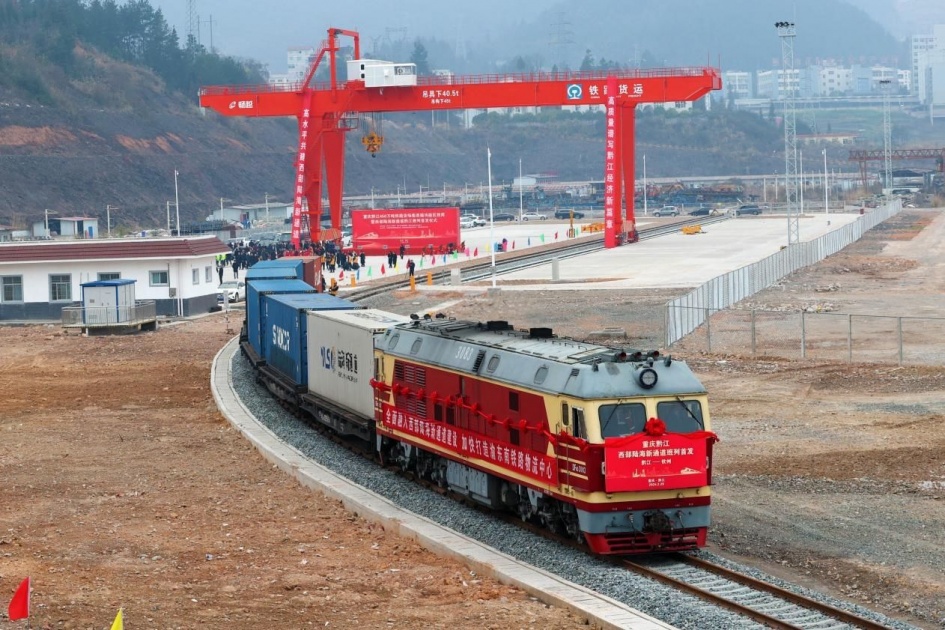
China's new international land-sea trade corridor records $8.9 billion in TEUs transported
The New International Land-Sea Trade Corridor (ILSTC), which runs through the western part of China, is rapidly expanding, serving as a vital connection between the Silk Road Economic Belt, the 21st-Century Maritime Silk Road, and the Yangtze River Economic Belt.
According to the People's Daily, the transportation route saw an increase of 7 percent year-on-year in 2023, with 615,200 twenty-foot equivalent units (TEUs) transported, surpassing a total value of 64.32 billion yuan ($8.9 billion), marking a 16 percent increase compared to the preceding year. Moreover, the International Land-Sea Trade Corridor (ILSTC) has expanded its reach to 490 ports across 120 countries and regions, facilitating the transportation of over 1,100 types of goods.
The bustling activities at the Guoyuan Port in Liangjiang New Area, southwest China's Chongqing municipality, mirror the ILSTC's rapid development as a vital logistics pathway. As of December 2023, 42 national logistics hubs have been established in provinces, municipalities, and autonomous regions along the corridor, with 11 new national logistics hubs set up in 2023 to reinforce the role of important logistics nodes.
Institutional innovation has played a significant role in improving the ILSTC's comprehensive service capability. Customs clearance continues to be facilitated, with the overall customs clearance time for import and export at ports of Guangxi reduced by 73.2 percent and 98.01 percent, respectively, compared to 2017.
The application of digital documents is also increasing, with the pilot "one-document coverage mechanism" expanding its coverage to Southeast Asian countries such as Singapore, Vietnam, and Laos. The "one-container coverage mechanism" has been implemented extensively, leading to a cost reduction of around 1,000 yuan per container.
Furthermore, the building of information exchange platforms is accelerating, with over 800,000 pieces of data on container and vessel movements shared with Singapore's port operator PSA, extending information about international supply chains from China to the world.
The ILSTC's rapid development and ongoing innovations in logistics and customs procedures are set to further enhance China's connectivity with the global market and contribute to the country's economic growth.


























